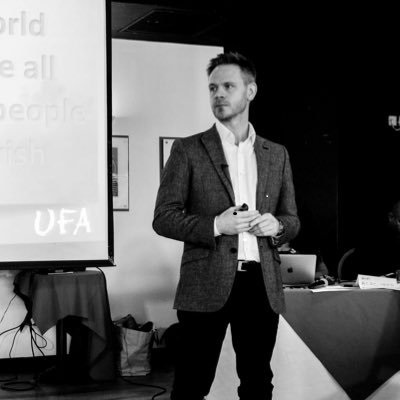DiversityQ asked leading workplace practitioners how the COVID-19 pandemic would impact the longer-term objectives of a more inclusive and diverse workplace. Here Paul Evans, Co-CEO of social mobility charity Leadership Through Sports & Business (LTSB), shares his thoughts.
Paul, has COVID -19 set the diversity and inclusion agenda back decades?
I do not believe so. At all times and particularly during times of crises, having good diversity and practising inclusion is essential to challenge us to look at problems differently and from a range of perspectives.
Diversity allows us to consider a broader range of issues that we might not have otherwise, benefiting from different experiences, skills and backgrounds. A diverse skill-set and people mix will be essential to problem-solving, planning and showing resilience, now more than ever. Many organisations are stepping up to the challenge of supporting colleagues, beneficiaries and partners in inclusive, impactful ways.
At LTSB, we are already benefiting from our fantastic teams’ diverse range of backgrounds and expertise. We are looking at current issues and the opportunities presented by the crisis through different lenses and perspectives. Our conversations are therefore more robust, leading to well thought out actions.
We are benefiting from the expertise and continued commitment from our corporate partners. They work with us to ensure minority groups, particularly young people from challenging backgrounds, are not left behind. Our work to ensure a world where all young people can achieve their aspirations continues and with the support of our partners, we will be doing our bit to ensure the diversity and inclusion agenda moves forward, not backwards.
Organisations should not hide behind COVID-19 as an excuse to not fulfil our collective responsibilities to ensure diversity and inclusion is at the forefront of people’s minds and to take positive action in this regard. We at LTSB hold ourselves to account in this area and will continue to do so.
Will minority groups struggle to get jobs as recruiters rush to fill vacancies with easy hires?
It is well known across the youth and employability sectors that minority groups who are disadvantaged face barriers to employment even in the best of times. Typically, those with multiple barriers to employment find it harder to find the jobs they want and to get the support they need to sustain it. That’s one of the reasons that LTSB exists, to support and empower young people to access the jobs and careers they deserve and can be proud of, whatever their background.
Like other organisations, we were concerned about the effect COVID-19 would have on our ability to support young people from disadvantaged and diverse backgrounds to secure apprenticeships, placements and employment. However, our staff team has stepped up in remarkable ways to “hold” young people and support them in ever more creative ways to ensure no-one is left behind and that they continue to receive the support and skills they need.
We were thrilled, but not surprised in the way our corporate partners responded to the crisis in positive, action focussed ways. So many of our stakeholders reached out immediately to offer pro-bono support, a continuation of our programmes that support young people, de-restriction of funding and an absolute commitment to working with our young people virtually and remotely.
This represents a real commitment to ensuring young people from all walks of life have meaningful opportunities, even at this time of unprecedented challenge. Of course, some employers are going to be hit by COVID-19 and in panic might rush to fill vacancies with “easy” hires. However, we are seeing a collaborative, strategic approach from our partners such as Macquarie, NatWest and RSM who are moving forwards with their support and opportunities for our young people, many of whom are from diverse backgrounds.
Who will be impacted the most by COVID-19 in the diversity and inclusion sector?
The potential is for minority groups and those groups that traditionally face multiple barriers to employment.
Do you think COVID-19 will impact opportunities for minority groups in terms of employment and career growth?
Evidence suggests that Individuals from minority groups face structural barriers to employment opportunities as well as areas such as housing and healthcare. In 2015, a government-commissioned report found that one in eight of the working-age population were people from BAME backgrounds, yet BAME people made up only 10% of the workforce. BAME groups were, on average, twice as likely to be unemployed than their white British counterparts, and this isn’t changing in a significant enough way. These statistics show that even in normal circumstances, minority groups are at a significant disadvantage.
Organisations have the power to tackle this head-on and ensure that access to opportunities to flourish and thrive are available to all individuals. At LTSB, we are proud of our statistics around diversity and our success in ensuring the best outcomes we can for all of our young people. For example, since 2012, LTSB has worked with over 500 young people from disadvantaged backgrounds, preparing and supporting them into meaningful work with major firms. Around 67% of these young people are BAME (Black, Asian and minority ethnic). Female participation is at 33%, a statistic we are proud of given we work in male-dominated industries.
Our work with corporate partners, such as RBS / NatWest, continues to offer a range of digital and technology apprenticeship programmes in London, Manchester and Edinburgh. We are delivering more impact than ever with plans to grow our impact, even in these difficult times. Forward-thinking corporations and organisations, in general, will take the opportunity to gain from the significant and documented benefits that diversity brings to the organisation. Our experience with our partners shows us that firms are looking to up the ante in ensuring support for minority groups that face barriers to employment, and we hope that this is reflected across our society.

Paul Evans, Co-CEO of Leadership Through Sport & Business is a social mobility charity that provides young people who face disadvantage access to meaningful careers in major firms.







